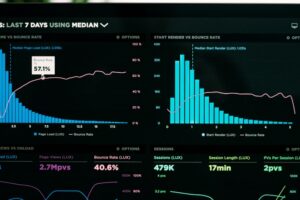In today’s digital era, the tourism industry is undergoing a transformation, fueled by the power of data-driven insights. Tourism analytics, powered by big data, machine learning, and artificial intelligence, is providing key players with valuable information to predict travel trends, improve visitor experiences, and optimize business strategies. But how exactly is data reshaping the tourism landscape? Let’s dive into some of the innovative ways that data-driven insights are influencing the future of travel.
Understanding Traveler Behaviour
One of the most significant advantages of tourism analytics is its ability to offer a deep understanding of traveler behavior. Every online search, social media post, booking, and review leaves behind valuable digital breadcrumbs. Data analytics tools can track these actions, revealing insights into tourists’ preferences, travel habits, and interests. This information enables tourism operators to tailor their services to meet the specific needs of their target audience.
For example, analyzing search data helps businesses identify which destinations are trending and which activities are attracting more tourists. With this knowledge, companies can create targeted marketing campaigns, offer personalized travel experiences, and ultimately increase customer satisfaction.
Optimizing Marketing Strategies
In an industry as competitive as tourism, effective marketing is crucial for success. Data-driven insights are making marketing more precise and efficient than ever before. By analyzing trends and consumer behavior, businesses can segment their audience and send highly targeted promotions based on travelers’ preferences.
Predictive analytics can even forecast when a traveler might be interested in booking their next trip. With this information, travel companies can send personalized offers or content at just the right time, increasing the likelihood of conversion. By investing in data-driven marketing strategies, tourism operators can achieve higher returns on investment and drive more bookings.
Enhancing the Visitor Experience
Customer experience is everything in the tourism industry, and data analytics are playing a critical role in enhancing it. Through real-time data monitoring, tourism businesses can respond to guest needs more efficiently. For instance, hotels can use data to adjust room rates based on demand, offer personalized services, or even predict when guests might need assistance during their stay.
Additionally, tourism boards and operators can analyze tourist feedback and reviews to gain insight into what visitors enjoy and where improvements can be made. Whether it’s streamlining check-ins, offering tailored experiences, or providing better customer support, data-driven decisions help create memorable travel experiences that keep tourists coming back.
Predicting Travel Demand and Managing Resources
Tourism analytics is revolutionizing how destinations manage their resources by accurately predicting travel demand. Through advanced modeling techniques, businesses can forecast travel patterns and adjust their operations accordingly. This is particularly useful for managing peak tourist seasons or anticipating the impact of events such as festivals, holidays, or even unexpected occurrences like pandemics.
For instance, airlines can adjust flight schedules, hotels can manage staffing levels, and local attractions can anticipate visitor numbers. This ability to predict demand helps businesses avoid overbooking or understaffing, ensuring a smoother experience for travelers while optimizing resource use.
Sustainability and Smart Tourism
Another critical aspect where data-driven insights are shaping the future of tourism is sustainability. As environmental concerns become increasingly important to travelers, tourism operators are leveraging data to promote sustainable practices. By analyzing visitor patterns, destinations can manage overcrowding at popular sites, reduce environmental impact, and promote off-the-beaten-path experiences.
Smart tourism, which uses technology and data to improve visitor experiences while minimizing ecological impact, is becoming a global trend. Data-driven solutions enable smart cities and destinations to balance tourism growth with the preservation of local culture and ecosystems, ensuring that future generations can continue to enjoy these places.
Conclusion
Data-driven insights are transforming the tourism industry in once unimaginable ways. From personalizing marketing campaigns to predicting demand and enhancing visitor experiences, the potential of tourism analytics is vast. As businesses and destinations continue to embrace data, the future of tourism looks smarter, more sustainable, and incredibly customer-focused. By harnessing the power of data, the travel industry is adapting to current trends and shaping the future of global tourism.






